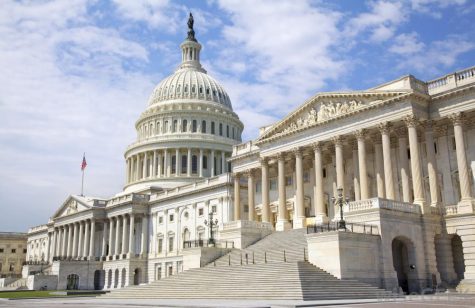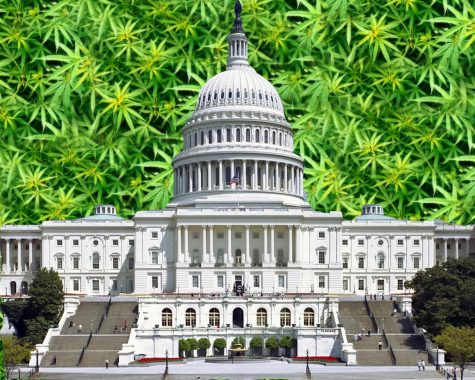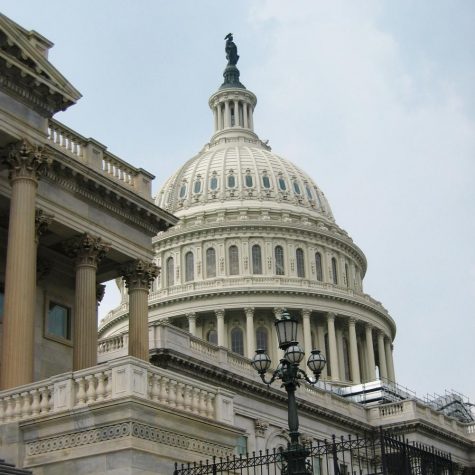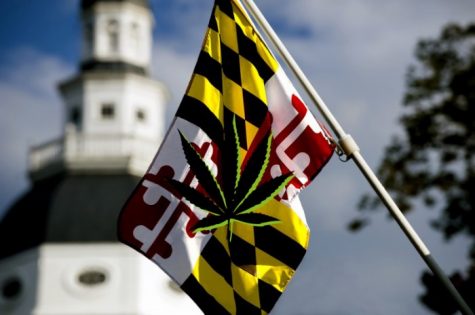Cannabis industry bags $5 billion worth of legalization wins via state legislators this year

The year 2021 looks set to be a record-breaking year in terms of recreational cannabis legalization. According to new projections outlined in the MJBizFactbook, legalization efforts are being spurred on by the recent enactment of adult-use laws in Connecticut, New Mexico, New York and Virginia.
Collectively, these states are expected to generate in excess of $4.5 billion in annual sales revenue by their fourth year of operation. Moreover, medical cannabis legalization in Alabama is anticipated to stimulate annual sales revenue in the range of $500 million; mainly thanks to governor and lawmaker reform efforts.
MJBizFactbook analysts claim that the rapidly-spreading legalization of adult-use cannabis across the U.S. mirrors a milestone number of legislative victories for recreational cannabis lobbyists and advocates alike. Additionally, analysts believe that adult-use cannabis laws are being influenced not only by citizens but also, by governors and lawmakers.
“This year has shown us that state legislatures are capable of rising to the challenge to end cannabis prohibition,” said the director of state policies at Washington DC-based Marijuana Policy Project, Karen O’Keefe, in a recent statement.
Let’s take a closer look at the four aforementioned adult-use markets that have legalized the plant this year via state legislative efforts:
New York
In the State of New York, the new recreational cannabis market is expected to launch at some point during 2022, with annual sales predicted to top $2.1 billion by the fourth year of operation.
Based on information featured in the MJBizFactbook, existing medical cannabis operators can participate in the recreational cannabis market if they pay a one-off “special licensing fee” to transform three medical cannabis stores into medical-recreational establishments.
New York’s cannabis law stipulates that a 13 percent tax will be applied to all cannabis products, with nine percent being allocated for the state and four percent for localities. Vertical operations can be formed by microbusinesses, but other types of businesses are forbidden from vertical integration.
In regards to social equity provisions, 50 percent of all adult-use licenses will be awarded to social and economic equity applicants, all of whom will qualify for fee reductions, waivers and low- or no-interest loans. In addition to this, priority status will be granted to microbusiness and delivery license applicants, and 40 percent of tax revenue earned through adult-use sales will be distributed among communities impacted by cannabis prohibition.
Connecticut
In the State of Connecticut, the new recreational cannabis market is expected to launch in May 2022, with annual sales predicted to top $750 million by the fourth year of operation.
By summer, existing medical cannabis cultivators can apply for adult-use licenses. Those cultivators will, however, be required to pay a $3 million fee; the cost is reduced to $1.5 million for social equity joint ventures. Moreover, retail sales can be prohibited through zoning laws imposed by local jurisdictions. Residents would be allowed to approve recreational cannabis stores by petitioning for a local referendum.
All cannabis products sold through Connecticut’s legal cannabis market would be subject to a 6.35 percent state sales tax. Additionally, a three percent tax would be collected by municipalities that permit adult-use sales.
Key social equity provisions, as outlined in the MJBizFactbook report, clarify that 50 percent of applications will be reserved for social equity applicants. To ensure equal opportunity, the majority of new licenses would be issued by a lottery.
New Mexico
In the State of New Mexico, the new recreational cannabis market is expected to launch on April 1, 2022, with annual sales predicted to top $425 million by the fourth year of operation.
Microbusinesses can be vertically integrated in New Mexico, where an excise tax of 12 percent will be placed on retail sales; adding to the 5-9 percent local and state sales taxes. As time progresses, the excise tax would inflate to 18 percent. Adult-use dispensary density can be limited by municipalities, but not completely prohibited.
Social equity provisions highlighted in the MJBizFactbook report specify that the state must establish a plan for license diversity. Native American community members have also been informed that they can participate in the adult-use market through agreements with regulators.
Virginia
In the State of Virginia, the new recreational cannabis market is expected to launch on January 1, 2024, with annual sales predicted to top $1.3 billion by the fourth year of operation.
As per Virginia’s newly-enacted adult-use cannabis law, vertical integration will be limited to small businesses and product sales will be taxed at 21 percent (in addition to the six percent standard state sales tax.) The following license caps will also be introduced:
- Retail stores – 400
- Cultivation facilities – 450
- Manufacturing facilities – 60
- Wholesalers – 25
Social equity licenses will be awarded during the early stages of the licensing process and qualified applicants must maintain a 66 percent ownership stake in the business. Successful applicants will be invited to apply for low-interest loans for capital-raising purposes.
You can download the latest edition of the MJBizFactbook by clicking here.






